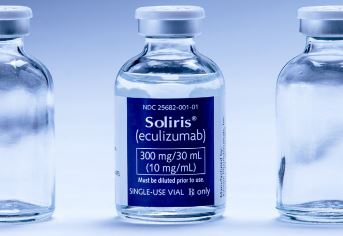Alexion prepares filings for new rare disease use for Soliris

Alexion is preparing filings in major markets for its rare disease drug Soliris in a new indication after a positive readout in a rare neurological disease.
The Boston biotech enjoys blockbuster revenues thanks to Soliris, which is already approved in three other rare diseases.
Approved since 2007 in paroxysmal nocturnal hemoglobinuria (PNH), Soliris is reaching the end of its patent life in the US and EU, where protection ends in 2021 and 2020 respectively.
Rival companies including Amgen are trying to market cheaper near-copy biosimilars to steal market share once the legal protection expires.
Alexion hopes to squeeze further sales out of Soliris (eculizumab) after results in patients with anti-aquaporin-4 (AQP4) auto antibody-positive neuromyelitis optica spectrum disorder (NMOSD).
NMOSD is a rare, devastating, complement-mediated disorder of the central nervous system characterised by relapses.
Each relapse results in stepwise accumulation of disability, including blindness and paralysis, and sometimes premature death and there are no approved therapies.
The study met its primary endpoint of time to first adjudicated on-trial relapse, demonstrating that treatment with Soliris reduced the risk of NMOSD relapse by 94.2% compared to placebo.
At 48 weeks, 97.9% of patients receiving Soliris were free of relapse compared to 63.2% of patients receiving placebo.
Soliris was generally well tolerated with a safety profile consistent with that seen in previous clinical studies and real-world use in its three approved indications. No cases of meningococcal infection were observed.

John Orloff
John Orloff, head of R&D at Alexion, said the results from Soliris “exceeded expectations.”
He said: “Given that patients currently have no approved therapies, we are moving quickly to discuss these results with regulators and file for approval in the US, EU, and Japan.”
Earlier this year Alexion hastened development of its successor to Soliris by cashing a fast track review voucher with the FDA.
The new drug, ravulizumab, is also being tested in PNH, but allows for administration every eight weeks, instead of Soliris’ fortnightly infusion regimen.












